 Mysteries
Mysteries  Mysteries
Mysteries  History
History 10 Surprising Stories About the Texas Rangers
 Humans
Humans 10 Philosophers Who Were Driven Mad by Their Own Theories
 Miscellaneous
Miscellaneous 10 Video-Game-Worthy Weapons and Armors from History
 Weird Stuff
Weird Stuff 10 Psychics Who Accurately Predicted Wartime Events
 The Arts
The Arts 10 Pieces of Art Inspired by a Broken Heart
 Health
Health 10 Science Fiction-Sounding New Medical Treatments
 History
History 10 Surprising Facts About the Father of Submarine Warfare
 Space
Space Ten Astonishing New Insights into Alien Worlds
 Weird Stuff
Weird Stuff 10 Bizarre Summer Solstice Rituals Still Practiced Today
 Mysteries
Mysteries Top 10 Haunting Facts About the Ghost Ship MV Alta
 History
History 10 Surprising Stories About the Texas Rangers
 Humans
Humans 10 Philosophers Who Were Driven Mad by Their Own Theories
Who's Behind Listverse?

Jamie Frater
Head Editor
Jamie founded Listverse due to an insatiable desire to share fascinating, obscure, and bizarre facts. He has been a guest speaker on numerous national radio and television stations and is a five time published author.
More About Us Miscellaneous
Miscellaneous 10 Video-Game-Worthy Weapons and Armors from History
 Weird Stuff
Weird Stuff 10 Psychics Who Accurately Predicted Wartime Events
 The Arts
The Arts 10 Pieces of Art Inspired by a Broken Heart
 Health
Health 10 Science Fiction-Sounding New Medical Treatments
 History
History 10 Surprising Facts About the Father of Submarine Warfare
 Space
Space Ten Astonishing New Insights into Alien Worlds
 Weird Stuff
Weird Stuff 10 Bizarre Summer Solstice Rituals Still Practiced Today
10 Common Misconceptions About The European Union
It’s one of the biggest groupings in the world. As a single bloc, the European Union has a population bigger than the United States,[1] a land area that dwarfs India, and an economy that could give even global powerhouse China a run for its yuan.
Yet for all its clout, the EU remains something most people are broadly ignorant about. If you’re from outside the continent and feel perplexed every time phrases like “Eurozone,” “European Economic Area,” and “What the heck is EFTA?” get thrown around, you’ve come to the right place.
10 Every European Country Is A Member
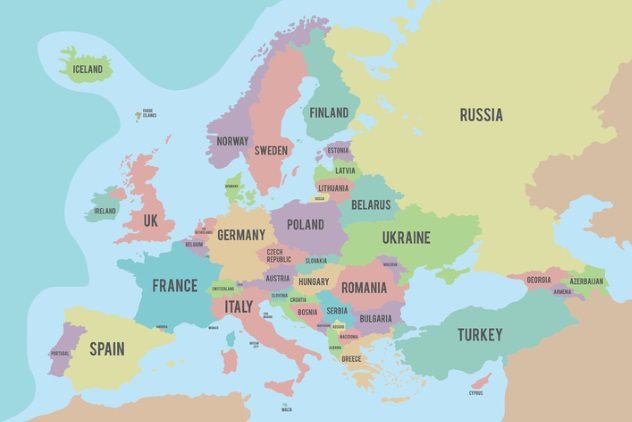
Let’s get this out of the way. Plenty of journalists like to use “Europe” interchangeably with “the EU.” Mostly, that’s for ease of writing, but it certainly gives the impression that most, or even all, European countries are part of the Union.
To call this misleading would be an understatement. Depending on how you’re counting Europe, the continent contains anywhere between 42 and 48 countries. (Some counts don’t include Russia, Turkey, Armenia, Georgia, Azerbaijan, and Vatican City). Care to guess how many are in the EU?
Try slightly over half.[2] When the UK leaves in March 2019, the EU will consist of 27 countries. That means there are 21 entire nations that get severely teed off when you assume Brussels speaks for the entire continent.
Some of these countries are more engaged with the bloc, some less. Norway, Iceland, and Lichtenstein are members of the European Economic Area (EEA), which means they follow Brussels on some matters but not others. Switzerland is more removed. (The EEA plus Switzerland is known as EFTA.) At the other end of the scale, you have somewhere like Belarus, which has about as much desire to join the EU as Texas does.
9 Every EU Country Uses The Euro
(And Non-EU Countries Don’t Use It)
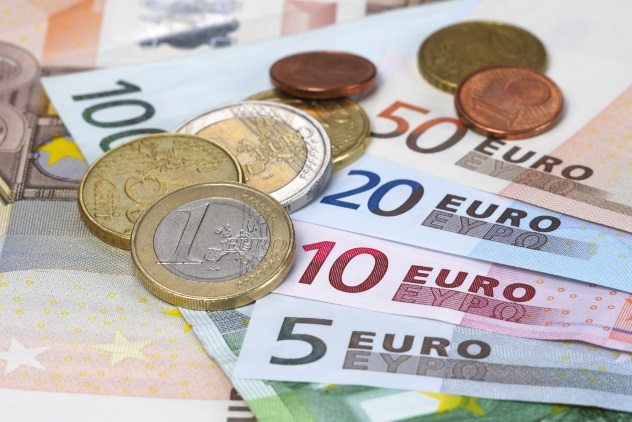
One of the most confusing things about the EU is how it sometimes looks like a fledgling nation and sometimes like a trading bloc. The euro is a good example of this. The official currency of the EU, it’s up there alongside the dollar, pound, and yen. Yet not every EU country uses it. To make matters even more confusing, there are plenty of non-EU countries that use it, too.[3]
In total, 19 EU countries use the euro as their official currency, against nine that don’t (including the UK). Together, the euro countries are known as the Eurozone, and they’re the ones you see freaking out at high-level meetings every time Athens has a debt crisis. EU rules mean you technically have to join the single currency, but countries from Poland to the Czech Republic to Hungary have all, effectively, called the euro a terrible idea and refused to join.
Weirdly, four non-EU countries that were under no obligation to adopt the euro now also use it officially. So Andorra, San Marino, Monaco, and Vatican City are all stuck with the disadvantages of the euro but no say at the table.
8 It’s The Only Major Trading Bloc With Free Movement

It’s a vast trading bloc with a surface area bigger than India, and a population nearly equal to the US. Founded in the 1970s, it broke down the borders between neighboring countries, with the aim of creating a world of free movement and equal opportunities.
Yep, we’re talking about the Economic Community of West African States (ECOWAS), a regional grouping that’s one of the biggest forces in the whole of Africa. Comprising countries from Nigeria to Togo to Senegal, it’s the African EU.[4] Like in the EU, members of ECOWAS are free to settle down in any other ECOWAS nation with no questions asked.
This is worth mentioning, as many wrongly assume that the EU’s Four Freedoms (free movement of goods, capital, services, and labor) are uniquely friendly to immigration. ECOWAS is at least as friendly. Like the EU, it allows its citizens to move freely. Also like the EU, it allows their new host countries to deport them after 90 days if they’re not working.
The EU and ECOWAS aren’t alone. South America’s Mercosur system also allows citizens the freedom to live and work in neighboring states.
7 It’s Pro-Migrant, Pro-Refugee
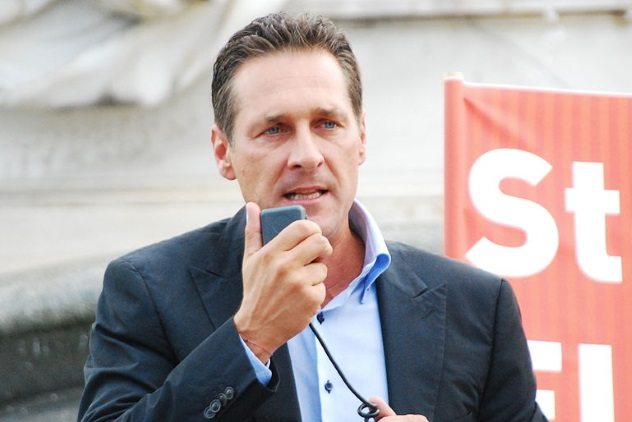
Refugees should be locked up in old army barracks, be monitored at all times, and suffer financial penalties if they fail to integrate into the local culture. No, this isn’t a speech from Roy Moore’s failed US Senate run. It’s a platform recently embraced by Heinz-Christian Strache, the vice chancellor of Austria. Already, the government has implemented the financial penalties part.[5]
Austria isn’t a founding EU member. But it’s a prosperous Western state. Strache’s comments show that, far from being the pro-migrant haven it’s often depicted as, the EU contains a slew of anti-immigrant views.
The Czech Republic, Poland, Hungary, Slovakia, the Netherlands, Denmark, and Bulgaria all have anti-immigrant parties in government. In Brussels, too, anti-immigrant feeling can prevail. A March 2016 deal to send refugees back from the EU to Turkey was so anti-refugee that Amnesty International called it shameful.
The perception abroad that the EU is an immigrant haven comes mainly down to one woman. In 2015, Angela Merkel threw open Germany’s doors to asylum seekers. Over one million arrived. In 2017, German voters duly punished her at the ballot box.
6 There’s A Lot Of Internal Migration

Given that the EU allows its citizens to live and work in other member states with very few restrictions, you might think a lot of them choose to do just that. One survey in the UK, conducted by polling firm Ipos Mori, found that Brits assumed over ten percent of the country’s population was born in another EU state.
The numbers tell a very different story. According to Pew Research, around 20 million EU citizens currently live in a different member state to the one they were born in. If that still sounds like a lot, you should know that works out to only four percent of the entire population.[6]
By way of comparison, around 40 percent of Americans live in a different state than their birth state, and that’s a historically low number. Even EU countries with a disproportionate amount of inward migration, like the UK, only have six to seven percent of their population born elsewhere in the Union.
To be fair, this isn’t all equally spread. Nearly four million Poles live and work abroad in the EU, compared to 1.2 million Brits, one million French, and fewer than 200,000 Swedes.
5 It’s Always A Force For Good

Because the EU’s image abroad is a progressive one, there are plenty of liberals who think of it as some sort of haven. While the EU certainly is progressive in some respects (the death penalty is outlawed, for example), it isn’t always the force for good some like to imagine. The EU can sometimes be downright evil.
In the closing months of 2017, shocking images were beamed around the world of a modern slave market operating from a migrant camp in the Libyan desert. While even Europhiles were doubtless surprised, it seems likely not everyone in Brussels was. In a damning December report, Amnesty International claimed senior EU leaders were directly colluding with Libyan militias, allowing migrants to be trafficked into slavery, tortured, and even killed, all to keep them from reaching Europe. Amnesty is now taking the case to court.[7]
There are other examples out there. Brussels has effectively renounced its security guarantor role in Bosnia, increasing the threat of another ethnic war. It has failed to provide funds to a penniless Greece to deal with migrants massing on its shores. Security service failings meant horrific terrorist attacks weren’t stopped.
4 It’s Always A Force For Evil

Because we live in a polarized world, there are an equal number of people out there who think the EU’s vaguely progressive bent makes it an evil empire. If that’s the case, it’s being led by an unexpectedly caring Darth Vader. For all its flaws, the EU has managed to achieve things that have undoubtedly made the world a better place.
Take the arrest of Serbian war criminals Radovan Karadzic and Ratko Mladic. The “butcher of Bosnia” and his pal were recently sent down on genocide charges at the ICC. The only reason they got there is because the EU dangled the carrot of membership in front of Serbia.[8] As a result, Serbia went from a pariah state a decade ago to one that’s now expected to become a full EU member by 2025.
There have been other achievements, too. The massive economic gains the former communist Eastern Bloc has made since the Iron Curtain came down are largely due to a massive expansion of EU membership in 2003—just compare the economies of Poland and Ukraine to see the benefits. Brussels has also helped fight corruption in the Eastern Bloc and has largely stopped the return of European dictatorships.
3 It Exists Solely For Germany’s Benefit
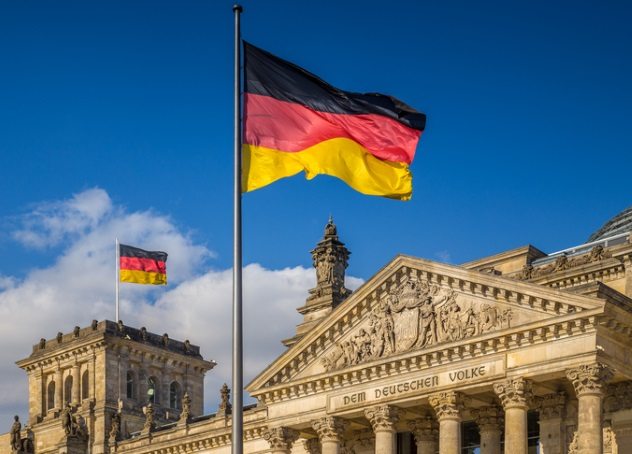
Germany is by far the EU’s most important economy. With the UK leaving, only France really comes close. Especially under Merkel, the Germans have wielded considerable influence in Brussels. But is the whole project just a German stitch-up? Not quite.
First, there are a crazy number of checks on what a single nation can force the entire bloc to do. Much the same way as California or Texas can’t unilaterally decide policy in Washington, DC, Germany has to deal with all other members of the EU Council. Voting on most things requires over half of member states to be on board.[9] Voting on really big things, like letting a new country join, requires every single member state to agree. Berlin has been left fuming on the sidelines over EU rules cracking down on carmakers, to give just one recent example.
Then there is the money. Germany pumps crazy amounts of cash into the EU, most of which then gets whisked off to countries like Poland, Romania, Bulgaria, and other former Eastern Bloc states. Sure, Germany more than makes up for this in trade benefits, but not more so than other EU net contributors.
2 Turkey May One Day Join

One of the big stories that dominated British headlines in the run-up to the Brexit vote was the worry that Turkey could soon join the EU. This prompted fears of Turkish immigrants arriving on the UK’s shores and disquiet in other EU countries about increased Muslim membership in the Union.
These fears were unfounded at best. Although the EU has started talks with several countries on joining, most of them never will. Turkey may be the least likely to join of all.
A big part of this comes back to the fact that all current EU members have to agree to let a new country join. Cyprus is a member of the EU. It’s also partially under Turkish occupation, meaning that Cyprus would probably veto Turkish accession. Not that this is anything but academic. Ankara recently declared its intention to end Turkey’s membership bid.
Joining the EU is an incredibly protracted process that takes decades.[10] Candidates have to agree to implement EU legislation, including on controversial stuff like gay rights, the death penalty, and ending corruption. Currently, the only membership bids moving forward at all are Serbia and Montenegro.
1 EU Countries Must Have Burgundy Passports
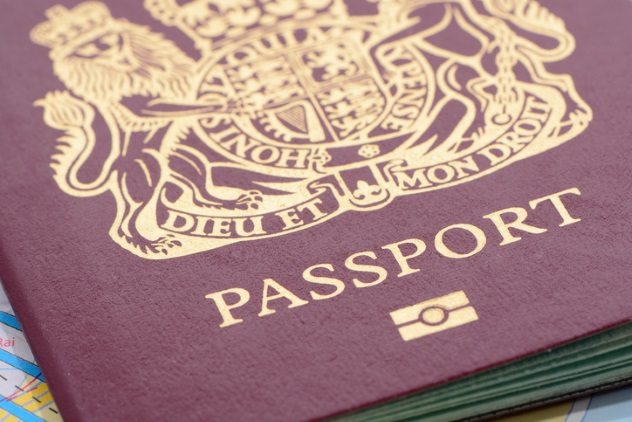
Go traveling in Europe, and you’ll probably get used to seeing a certain type of passport. Burgundy passports are an EU standard, and switching to them has long been a formality of joining the Union.
The key word in that above paragraph is “formality.” While the EU suggests new members use burgundy passports, it’s not a requirement. Croatia, for example, still utilizes the dark blue passports Zagreb brought in following independence.[11]
This might seem like a trivial issue, but it gets to the heart of why dissatisfaction exists in many parts of the EU today. A combination of Brussels encouraging people away from their national identities, combined with local politicians who never bother to tell citizens little changes like this aren’t actually necessary, are the reason things like Brexit happened.
For all the untrue things many people believe about the EU, there’s one criticism that does have a lot of truth: The EU probably needs to get better at communicating with its citizens. Whether it achieves this not-so-simple task will likely decide the future of the world’s biggest trading bloc.
Read more about the European Union on an beliefs about it on Top 10 Reasons The European Union Is Doomed and 10 Conspiracy Theories Surrounding Brexit.








